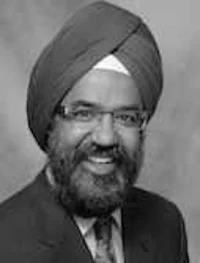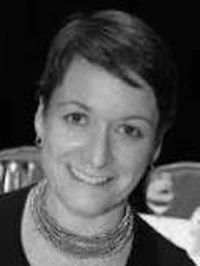Dr. Michael Pinsky is Professor of Critical Care Medicine (primary), Bioengineering, Cardiovascular Diseases, Clinical & Translational Science, and Anesthesiology at the University of Pittsburgh in the United States. He is also Docteur Honoris Casusa at the Universite Rene Descartes Paris V, School of Medicine in Paris, France. Dr. Pinsky is currently an Emeritus (Honorary) Attending at UPMC as well as a faculty member of the Center for Critical Care Nephrology at Pitt.
We put our 7 questions to Dr. Pinsky.
1. What are your key areas of interest and research?
- Applied cardiopulmonary physiology
- Haemodynamic monitoring and functional haemodynamic monitoring
- Using machine learning approaches to create predictive models of future cardiopulmonary state (predicting instability)
- Long-term outcome from critical illness
- Right ventricular physiology
- Cardiac resynchronisation and dyssynchrony analysis
- Regional blood flow in shock states
- Mitochondria and microcirculatory function and analyses in critical illness
2. What are the major challenges in your field?
Thinking outside defined areas of focused expertise. We all focus on specific problems to understand their many facets while at the same time restricting our vision of the broader issues, existing solutions and eager partners to join forces with to realise understanding of both disease and treatment interactions.
3. What is your top management tip?
Be open. Open to discuss your ideas with others and accepting of potential strange ideas until you have the chance to accept or refute them.
4. What would you single out as a career highlight?
Linking heart-lung interaction findings initially described in clinical care with Applied Physiology in the laboratory at Johns Hopkins Medical Institutes to create an entire field of research.
5. If you had not chosen this career path you would have become a…?
Photographer.
6. What are your personal interests outside of work?
Sailing, wine tasting, photography.
7. Your favourite quote?
Life is a sexually transmitted terminal disease.
Dr. Pinsky received his MD from McGill University in Montreal, and completed his postgraduate training at Stanford University, California; Orlando Regional Medical Center, Florida; and Johns Hopkins Medical Institutes, Baltimore, Maryland.
Currently, Dr. Pinsky is the programme director for an NIH National Research Service Award entitled "Experimental
Therapeutics in Critical Illness”, which he has directed for the last 17 years. He is also part of the training faculty of the NIH grant, “Cardiovascular Bioengineering,” the Fogarty Foundation International Training Grant, “Enhancing research and informatics capacity for health information in Colombia (ENRICH),” and the NIH grant, “Anesthesia research training grant.” He has been the director of the Cardiopulmonary Research Laboratory for the past 32 years. Dr. Pinsky serves as the principal investigator of an R01 on Using biological time series analysis to identify cardiorespiratory insufficiency and Industry-sponsored partnership (Edwards LifeSciences) on Complexity Modelling of Critical Illness. He is also co-I on two other R-01s on subarachnoid haemorrhage and endothelial dysfunction during traumatic haemmorhage.
Dr. Pinsky is the Editor-in-Chief of eMedicine’s
MEDSCAPE Critical Care and Associate Editor of Critical Care. He serves on the editorial boards of Chest, the
Journal of Critical Care, Current
Opinion in Critical Care, the International Journal of Critical Care and the
Annals of Intensive Care, and is on the Board of Reviewers for Intensive
Care Medicine. He also referees papers for numerous publications. He has published >170 papers, >120 chapters, 260 abstracts and 12 authored/edited volumes, including Advances
in Hemodynamic Monitoring and Applied
Physiology in Intensive Care Medicine 1 &
2.
In 2012 Dr. Pinsky was awarded
Honorary
Membership of the European Society of Intensive Care Medicine, and became one of the first 20 physicians to be conferred with a Master of Critical Care Medicine of the Society of Critical Care Medicine, a designation that honours members “who have distinguished themselves by achieving national and international professional prominence due to personal character, leadership, eminence in clinical practice, outstanding contributions to research and education in critical care medicine, or years of exemplary service to SCCM, ACCM, and the field of critical care medicine in its broadest sense. In 2012 he received a Presidential Citation for Outstanding Contributions to the Society of Critical Care Medicine, and in 2013 he received the SMART Award for Distinguished Achievement in Critical Care Medicine.
Prof. Pinsky kindly agreed to be interviewed at the 35th International Symposium on Intensive Care and Emergency Medicine in Brussels in March 2015.
Prof. Pinsky kindly agreed to be interviewed at the 35th International Symposium on Intensive Care and Emergency Medicine in Brussels in March 2015.






